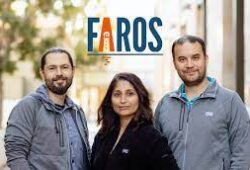Why some VCs bet on people over businesses
 Posted On
Posted On
Funding has been tough for most sectors in the past few years, and many VCs will tell you that a startup needs to have a killer product-market fit to get that check.
Wisdom
But Eric Tarczynski of Contrary Capital believes in investing in people before businesses, and the wisdom of this approach has been proven with AtoB.
AtoB actually started as something similar to Uber for buses, but thanks to the strength of the founding team.
The company was able to quickly turn around and become a platform that is more like Stripe for transportation.
It is an integrated financial platform based on the core truck fuel card product.
Since its inception in September 2019, AtoB has grown to a network of 25,000 businesses and 100,000 truck drivers in the US.
To give you an idea of how huge this potential market is, Harshita Arora.
Market Share
The company’s co-founder, says she thinks AtoB has only captured about 5% of the U.S. market share and can already make $100 million.
Arora herself is actually a perfect example of why VCs might want to find the gems of the world and let them do their thing.
Born and raised in India, the 21-year-old founder dropped out of school when she was 14 to pursue more challenging pursuits.
At 16, she founded Crypto Price Tracker, which became an App Store hit and was bought by Redwood City Ventures in 2018.
In a startup world that has been defined by the so-called Boy Genius (a.k.a. the hoodie-wearing MIT dropout who has historically been thrown billions of dollars by VCs).
Arora represents the future of investing in the next generation of Girl Geniuses.
We hosted Arora and Tarczynski on TechCrunch Live to discuss why VCs should invest in people over businesses.
The red and green flags of founding teams, the AtoB journey of building a product based on trucker problems, and more.
You can watch the recording of the session here – and read on for the highlights.
Tarczynski met Arora’s co-founder, Tushar Misra, about five years ago, during Contrary’s early days.
Misra was one of Uber India’s first employees and moved to San Francisco to start a micro-mobility logistics company in which Contrary invested.
The company didn’t work, but Misra impressed Tarczynski.
“We told him we want to support whatever you do next, so keep us posted,” Tarczynski said.
A few years later, Misra joined the founding team of AtoB. The team was still working on the original idea, but Contrary was preoccupied by people at this point.
“We said, look, we don’t care what it is. We don’t care if it’s Uber for buses or Stripe for trucks. We think you three are special people, so we want to write a check and move on.”
The way it turned out with AtoB is emblematic of how Contrary likes to do things.
Normally, virtual company providers learn about startups when they raise their hand for funds, which leads to transaction dynamics.
Sources: Techcrunch | beamstart


